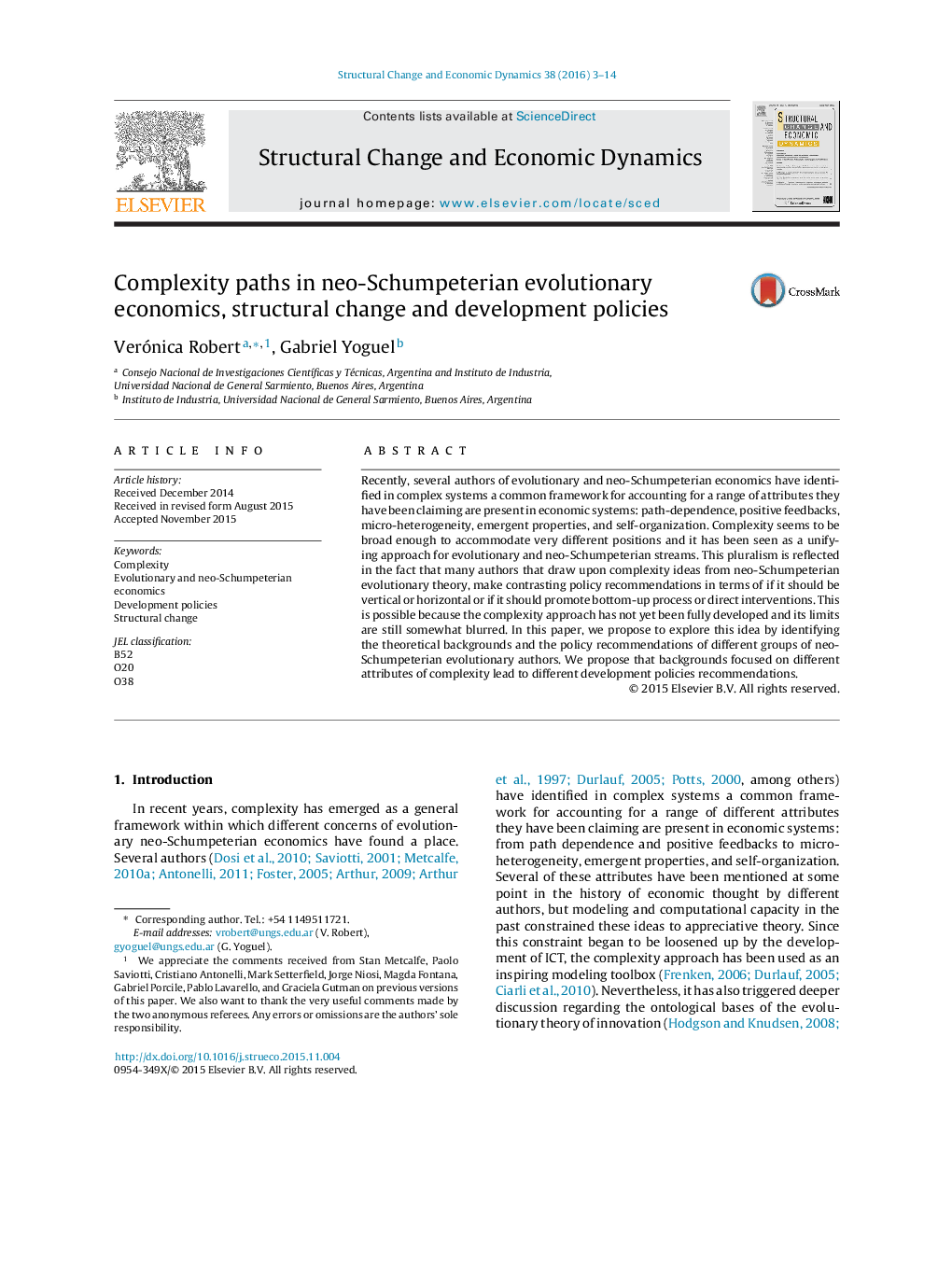| Article ID | Journal | Published Year | Pages | File Type |
|---|---|---|---|---|
| 988263 | Structural Change and Economic Dynamics | 2016 | 12 Pages |
Recently, several authors of evolutionary and neo-Schumpeterian economics have identified in complex systems a common framework for accounting for a range of attributes they have been claiming are present in economic systems: path-dependence, positive feedbacks, micro-heterogeneity, emergent properties, and self-organization. Complexity seems to be broad enough to accommodate very different positions and it has been seen as a unifying approach for evolutionary and neo-Schumpeterian streams. This pluralism is reflected in the fact that many authors that draw upon complexity ideas from neo-Schumpeterian evolutionary theory, make contrasting policy recommendations in terms of if it should be vertical or horizontal or if it should promote bottom-up process or direct interventions. This is possible because the complexity approach has not yet been fully developed and its limits are still somewhat blurred. In this paper, we propose to explore this idea by identifying the theoretical backgrounds and the policy recommendations of different groups of neo-Schumpeterian evolutionary authors. We propose that backgrounds focused on different attributes of complexity lead to different development policies recommendations.
